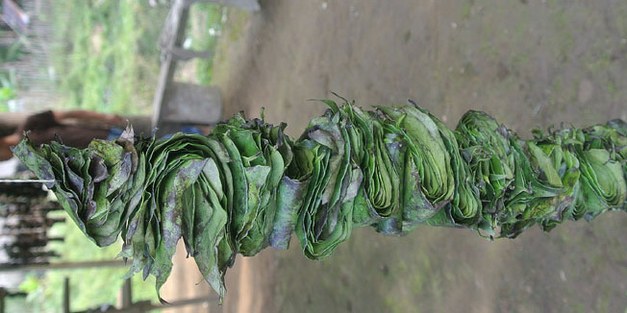
Photo: Dick Culbert, Flickr (CC BY 2.0)
Energizing agroforestry: Ilex guayusa as an additional commodity to diversify Amazonian agroforestry systems
Focali member Torsten Krause and colleague Barry Ness has just published a paper on agroforestry and the crop guayusa (Ilex guayusa) in the Ecuadorian Amazon. Guayusa - a native tree of the western Amazon region with leaves used for brewing tea, is grown by indigenous farmers in traditional agroforestry systems.
Abstract
Guayusa (Ilex guayusa) is a native tree of the western Amazon region grown by indigenous farmers in traditional agroforestry systems. Its leaves are used as a drink similar to tea, which is now commercialized and marketed outside of the Amazon. To assess the impacts from the early stages of commercial guayusa production, we conducted interviews in four commercial guayusa-producing communities with indigenous guayusa farmers in the Ecuadorian Amazon. We focus on their experiences and critically discuss and speculate about the socio-ecological implications of the expanding commercialization of guayusa, particularly in relation to propositions of this special issue. Results reveal that revenues from guayusa have not overtaken those from other cash crops. Commercializing guayusa can have benefits for farmers and the environment, provided that rigorous criteria that measure social and environmental impacts are adhered to. Furthermore, guaysa production is characterized by vertical integration where many individual farmers supply one processing and wholesale company in a short value chain fostering a locally tailored certification approach that is able to exert the continuation of the traditional agroforestry practices. Yet, sustainability initiatives, standards and certification only provide partial solutions for protecting ecosystem services in the Ecuadorian Amazon.
KEYWORDS: Guayusa, Ecuador, Kichwa, agroforestry, chakra, livelihoods
Access the full paper here.
